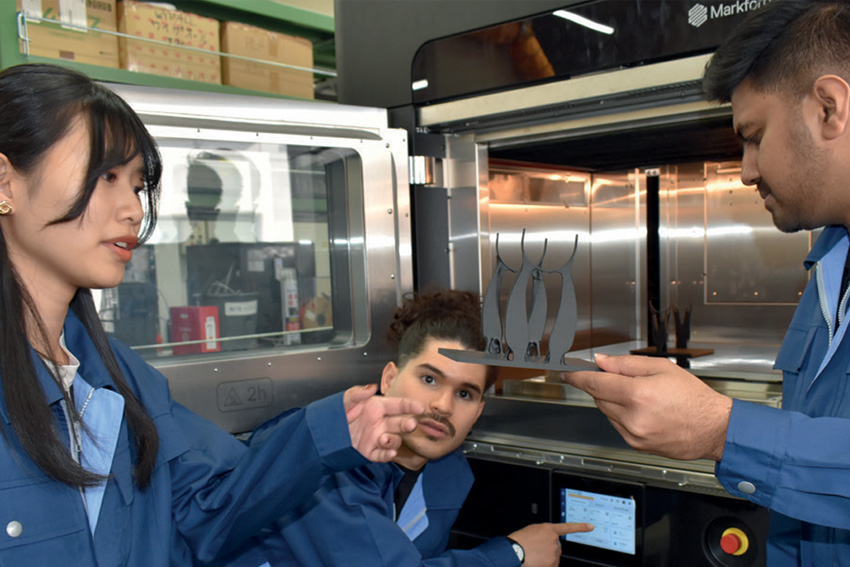

One of the world's safest countries offering students top-class facilities across the board, Japan is an increasingly popular choice for international students, with institutions like Nagaoka University of Technology fostering a culture of innovation, community and diversity, ensuring a brighter future for its alumni, Japan and the wider world.

Promoting cross-culture collaboration and innovation in the fields of technology and engineering, Nagaoka University of Technology offers a solid educational framework that has allowed its Japanese alumni to succeed overseas, while many of its international graduates go on to build successful careers and lives in Japan. Given Japan’s demographic issue—with its aging population causing a shortfall in the labor force that is projected to reach 11 million by 2040—preparing international students for the Japanese work place is both a commendable and necessary endeavor led by world-class educational institutions such as Nagaoka University of Technology.
While international students make up just 5 percent of the overall Japanese student population, at Nagaoka University of Technology the figure has reached as high as 13 percent. President Kamado Shigeharu attributes this high figure to the university's efforts at building a globally-minded institution and its successful Twinning Program for foreign students.
As part of the Twinning Program, students are taught in Japanese, while receiving supporting Japanese language classes, and have the chance to go on to undertake OTJ (on-the-job) training and complete a master's degree. “Sixty-five percent of foreign students find a workplace after completing this program, meaning they are working as fully-fledged engineers in Japanese companies,” says President Kamado, who also gives some examples of real success stories.
First, he mentions a graduate who joined a company in the chemical industry and succeeded in improving efficiency through a product developed in collaboration with a faculty member from the university. Having lived in Japan for 19 years, this graduate has obtained permanent residency, lives with their family in Japan, and plans to continue their children's education in the country. And second, he points to a graduate who completed the master's program and joined an electrical machinery manufacturing company. After nationalizing and working abroad, this graduate returned to their home country and secured employment with a foreign company associated with Japan.
“Our international graduates are not only thriving in Japan but are also making significant contributions worldwide and fostering opportunities for the next generation to receive education in Japan,” adds President Kamado.
With students being taught by both Nagaoka and foreign faculty, the Twinning Program is a prime example of how the university leverages MOUs (memorandum of understanding) with international institutions for collaborative education programs. “In terms of expansion, we are looking to increase the number of MOUs with international universities,” adds President Kamado.
“We also offer overseas OTJ and bidirectional short-term study abroad programs, and conduct overseas staff training to enhance globalization and specialization of our staff. Through such initiatives, we believe that globalization and diversity within the campus are being promoted. One of our Japanese graduates who had overseas OTJ experience in a partner company became the president of the firm’s overseas local subsidiary in his 30s. His experience not only helped him acquire language skills and expertise in his field, but also enabled him to understand culture, customs, and ways of thinking, which contributed to his career path.
“For our university, MOUs with overseas institutions are not just a tool for promoting personal exchanges and collaborative research, but are intended to promote collaborative education under the basis of true mutual understanding, where both parties are more deeply involved in each other's education.” This, he argues, enables the cultivation of individuals with diverse perspectives on cultures and values, capable of generating innovation, in addition to possessing advanced knowledge and skills.
“In the future,” he adds, “we are seeking partners with whom we will work together to develop engineers in countries and regions where industrial development will accelerate.”
0 COMMENTS